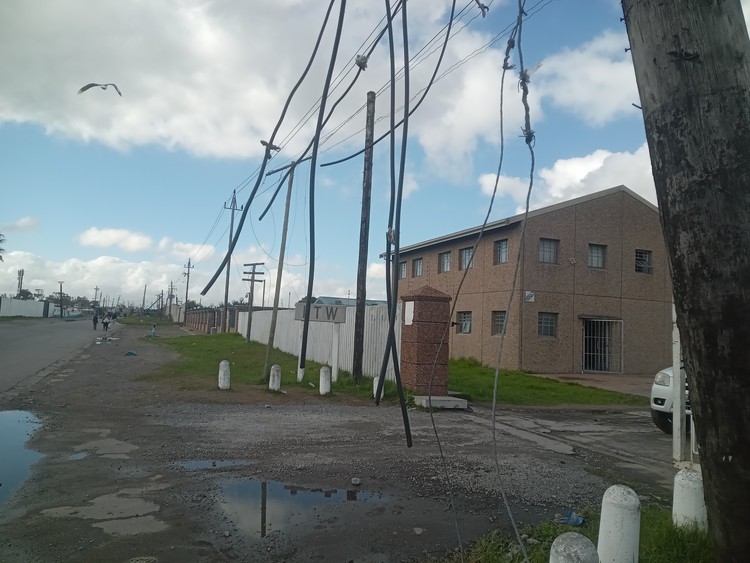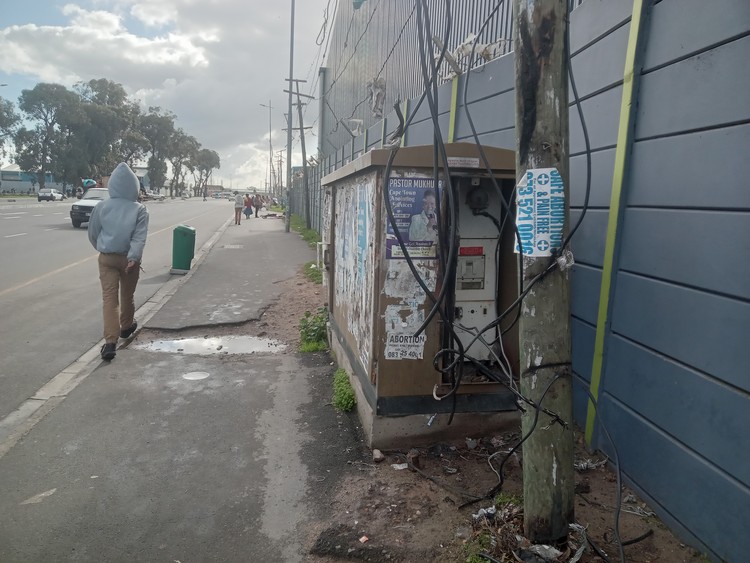City of Cape Town buys occupied Marikana land seven years after landmark ruling
Last week Eskom disconnected over 300 illegal connections in the settlement. Hours later people connected them again.
Some of the many illegal connections made to electricity network in Philippi East, Cape Town. Photos: Sandiso Phaliso
- Seven years after the landmark judgment, the City of Cape Town has bought the Marikana land in Philippi from several private owners.
-
In 2015, Marikana had more than 60,000 residents and 12,000 households. Community members estimate there are now more than 100,000 residents.
-
Residents have for years demanded that the City buy the land so that it can install services such as electricity and water. In the meantime, most households in Marikana rely on illegal connections.
The City of Cape Town has finally bought the privately owned land where thousands of families live at Marikana informal settlement in Philippi East. This comes more than ten years after the land was first occupied.
In 2015, Marikana had over 60,000 residents and 12,000 households. Community members estimate there are now more than 100,000 residents.
Residents have for years demanded that the City buy the land so that services can be provided. In a landmark decision in 2017, the court ruled in their favour. But years later they still sit without basic services such as electricity.
Most households in Marikana rely on illegal electricity connections for power. Last week, Eskom sent a team to Marikana and removed about 300 illegal electricity connections in the area. They also collected circuit breakers and other electricity cables.
However, just hours later, people had started reconnecting their illegal wiring. When we visited the area, illegal electricity wires hung like spider webs over the shacks as well as along paths between the homes.
“We have no choice but to rely on illegal connections for the last decade we’ve lived here. We need the electricity and people would do anything, even risking their lives to have it,” said a resident who asked not to be named.
Community leader Loyiso Nqitiza said they are expecting to have a meeting with the City to discuss the development and upgrading of Marikana. “The sooner the upgrading commences, the better for the people,” said Nqitiza.
GroundUp spoke to one of the groups that charge residents to illegally connect to the electricity network. The man we interviewed spoke on condition he was not named.
He said he has about 20 clients who pay R200 for him to reconnect them each time their electricity trips, or for other services in relation to their electricity connection. “I’m a self-taught electrician and have been helping around here (in Marikana) for more than five years,” he said, adding that he makes up to R10,000 in a good month.
Eskom did not answer our questions related to electrifying Marikana by the time of publishing.
The City’s mayoral committee member for human settlements, Carl Pophaim, told GroundUp the officials were busy with the compulsory feasibility studies needed to obtain development rights for Marikana.
Once all planning approvals were received, the City would begin upgrading the informal settlement, said Pophaim.
He said the land was purchased “at the cost determined during the mediation process”.
“A period of 18 to 24 months is required for all statutory processes to be completed,” he said. These processes started in November 2023.
“The City will communicate in detail as progress is made,” said Pophaim. “The exact type of development can only be determined after all feasibility studies have been concluded, as well as a public participation process to discuss development options,” he said.
One of the transformers near Marikana informal settlement.
Support independent journalism
Donate using Payfast

Next: Exhibition honours work of late Bang Bang Club photojournalist
Previous: Gauteng social development department wants to buy a building but doesn’t know what for
© 2024 GroundUp. This article is licensed under a Creative Commons Attribution-NoDerivatives 4.0 International License.
You may republish this article, so long as you credit the authors and GroundUp, and do not change the text. Please include a link back to the original article.
We put an invisible pixel in the article so that we can count traffic to republishers. All analytics tools are solely on our servers. We do not give our logs to any third party. Logs are deleted after two weeks. We do not use any IP address identifying information except to count regional traffic. We are solely interested in counting hits, not tracking users. If you republish, please do not delete the invisible pixel.


